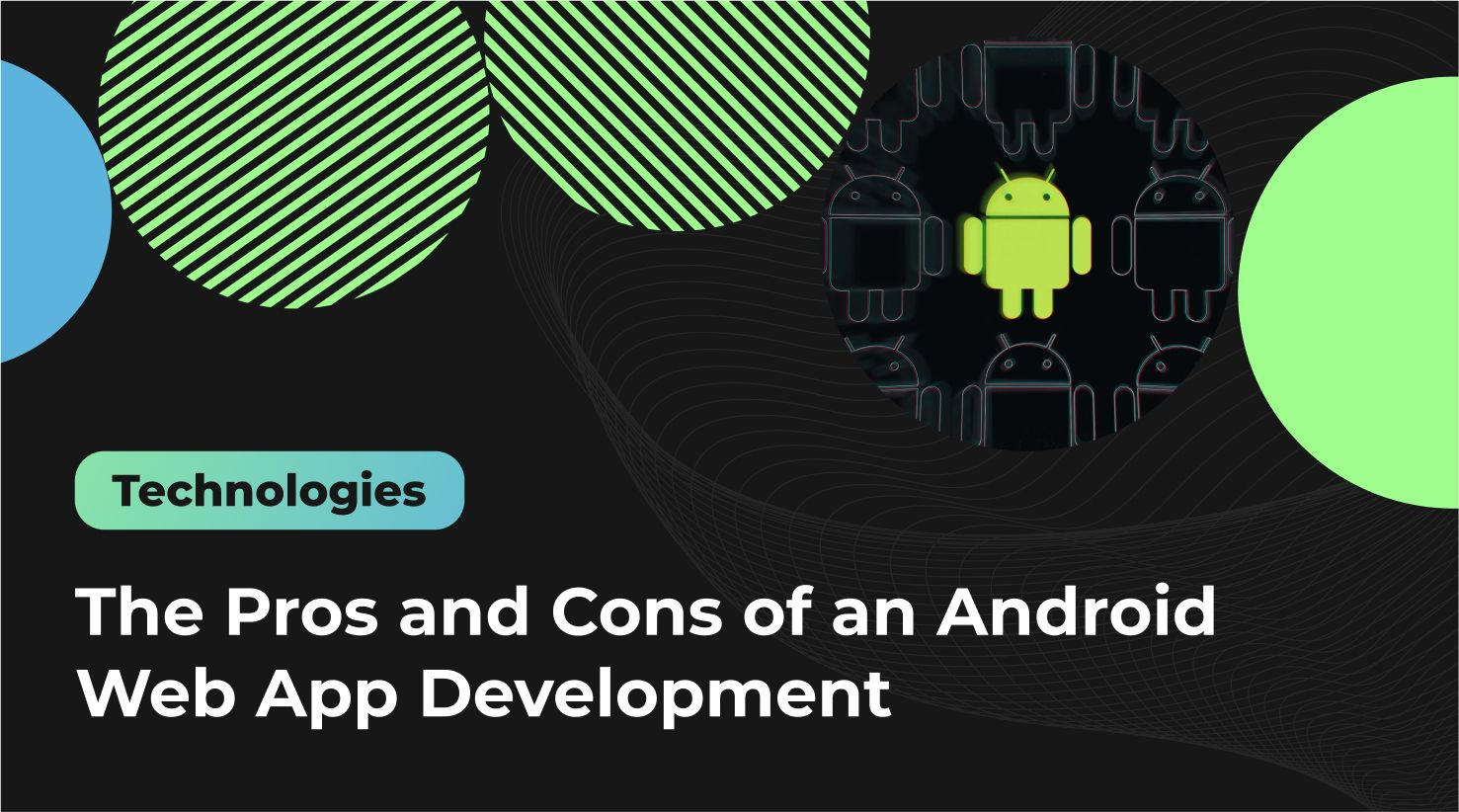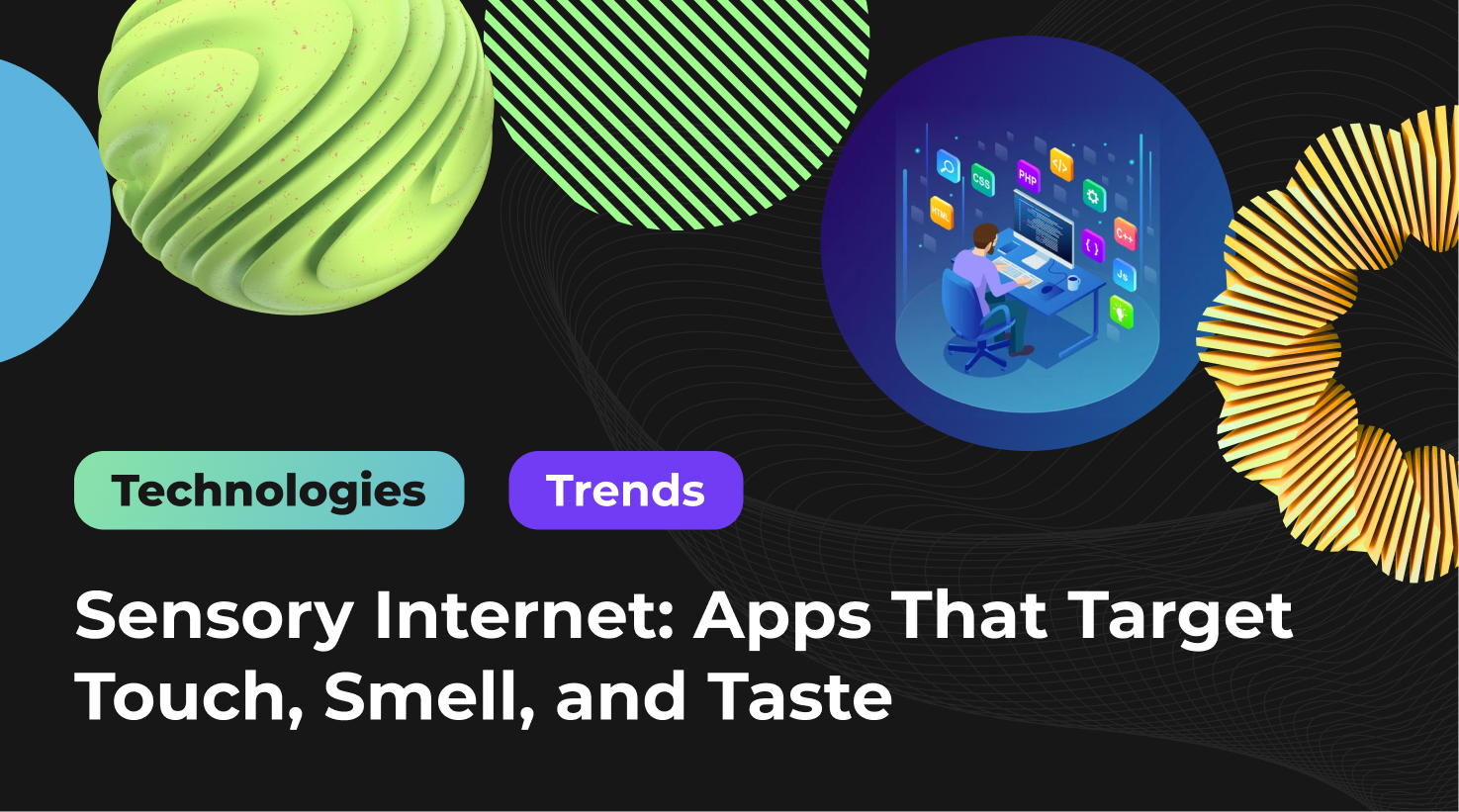The prevalence of smartphones in our daily lives is unmistakable, serving as our gateway to solving global business challenges, maintaining connections, planning activities, monitoring fitness routines, and much more. The recent surge in demand for these digital companions, especially noticeable during increased remote interactions, highlights the critical decision facing individuals and businesses: choosing between Android web app development and iOS platforms. This choice is not trivial, as the effectiveness and alignment of an app with its intended audience can significantly impact its success.
- Pros of Android Web App Development include a simple app acceptance process, hardware independence, language choice (Java or Kotlin), abundant learning resources, Flutter for cross-platform development, Instant Apps, and support for various platforms.u003cbru003e
- Cons of Android Web App Development involve lower user spending, security issues, OS adoption fragmentation, device diversity, and copyright concerns.
- Ficus Technologies offers expertise in Android Web App Development for diverse projects.
What is Android app development?
Android app development is the process undertaken by Android web app developers to create applications for the Android OS, which dominates the mobile market with an 80% share. This field of Android web app development leverages the open-source nature of Android to deliver products that fulfill individual and business needs, significantly enhancing business value. With a broad user base that reached 2.5 billion active devices in 2019, android web application development offers vast opportunities for developers to connect with users globally.

The Elements of the Native Android App Development
When diving into Android web app development, every Android web app developer needs to understand the core components that make up the toolkit for building dynamic apps. This foundation required for Android web app development includes various tools and resources designed to simplify the creation process, ensuring that developers have everything they need to bring their innovative ideas to the Android platform.
SDK
In Android web app development, the Software Development Kit (SDK) is an indispensable tool for every Android web app developer. Included with Android Studio, the Android SDK delivers a wide array of tools, such as documentation, libraries, profilers, emulators, and debuggers, necessary for developing applications. Android Studio provides the SDK, but it’s also available for separate download, allowing its use with different IDEs and offering versatility in the Android web application development approach.
IDE
The Integrated Development Environment (IDE) streamlines the coding experience for Android web app development. While it’s possible to utilize basic text editors, leveraging an IDE like Android Studio, the official IDE for Android web application development, integrates all necessary SDK tools. This integration facilitates a more efficient workflow for the Android web app developer, making it simpler to manage projects and harness the full potential of Android’s development capabilities.
Programming languages
Java and Kotlin are recognized as the official programming languages for Android web app development, providing strong foundations for building applications. While alternative languages such as C and C++ are available, and third-party tools enable Ruby or Python, they often lag in receiving updates. It’s crucial for an Android web app developer to carefully select their programming language, considering both the support provided by the official Android platform and the innovation potential, to streamline the development process effectively.
Libraries
Libraries are indispensable in Android web app development, providing pre-written code snippets that significantly reduce development time and boost app functionality. Every Android web app developer benefits from integrating popular libraries such as GSON for serialization, EventBus for efficient component communication, and Retrofit for streamlined API interactions. These tools are essential components of the Android web application development toolkit, making complex coding tasks more manageable and enhancing productivity.
Plugins
Plugins are essential for augmenting the capabilities of software tools in Android web app development. They enrich the IDE environment, enabling Android web app developers to tailor their workspace with additional features or integrations that streamline the Android web application development process. By leveraging plugins, developers can enhance their efficiency, adapt to new requirements, and maintain a competitive edge in the fast-paced world of app development.
Wondering how Ficus Technologies can assist you in overcoming these hurdles?
Contact UsWhat are the Pros of Android App development?
The advantages of Android web app development emphasize its superiority, especially compared to iOS. Every Android web app developer needs to understand these advantages to fully utilize Android web app development. We’ll examine the main factors that position Android as the best choice for developers and enterprises.
- Simple acceptance process for the app
Android web app development enjoys a simpler app acceptance process, providing a distinct advantage for Android web app developers. Google Play’s less rigorous review criteria contrast sharply with Apple’s meticulous evaluation, enabling developers to swiftly publish MVPs and early versions. This openness fosters quicker feedback and iteration, a boon for Android web application development. The leniency in app acceptance accelerates the development cycle, allowing Android web app developers to adapt and evolve their applications with greater agility and less friction.
- Hardware Independence
Hardware Independence elevates Android web app development, enabling Android web app developers to operate without constraint across diverse operating systems like Windows, macOS, and Linux. This universality is powered by Java, making Android web application development tools like Android Studio and Eclipse universally accessible. This liberates Android web app developers from other platforms’ hardware limitations, fostering a more inclusive and versatile development ecosystem.
- Java and Kotlin as programming languages
Java and Kotlin, as official programming languages, underpin Android web app development, offering a robust framework for Android web app developers. Java’s widespread adoption and object-oriented design provide a solid foundation, while Kotlin reduces complexity with its streamlined syntax. These languages afford Android web app developers a blend of reliability and modernity, crucial for developing innovative and efficient Android web applications.
- Learning resources
Learning resources significantly enrich the Android web app development landscape, providing Android web app developers with comprehensive educational materials. Google’s training programs span Android fundamentals to Kotlin and Flutter, enhancing skills through interactive and multimedia content. These resources support Android web app developers stay abreast of the latest trends and techniques, fostering a knowledgeable community dedicated to advancing Android web application development.
- Flutter
Flutter represents a leap forward for Android web app development, allowing Android web app developers to craft native apps from a unified codebase. This SDK, compatible with Android Studio and IntelliJ, streamlines the Android web application development process, including UI design, by incorporating a built-in Material Design library. Flutter’s efficiency and integration capabilities offer Android web app developers a pathway to deploy high-quality, aesthetically consistent Android apps rapidly.
- Instant Apps
Instant Apps provide a distinctive advantage in Android web app development, enabling Android web app developers to offer users a taste of their apps directly from Google Play without needing installation. This feature boosts user engagement by facilitating immediate access to app content, positioning Android web application development as a leader in innovative app delivery. Instant Apps enhance user experience and serve as an effective preview mechanism for Android web app developers, promoting their full applications.
What are the Cons of Android App development?
While Android web app development offers numerous advantages, Android web app developers need to be aware of certain disadvantages. This section aims to shed light on the challenges associated with developing Android web applications and provide a balanced perspective for Android web application developers.
- Android users’ spending habits
Android web app development faces a challenge with Android users’ spending habits. Android web app developers observe that their audience is less likely to purchase apps or make in-app transactions than Apple users. This trend is attributed to the availability of free alternatives on Google Play and the demographic distribution of Android users, who predominantly reside in regions with lower income than Apple’s main markets. This necessitates Android web application development to rely on alternative monetization strategies often.
- Security concerns
Security concerns are a significant obstacle in Android web app development. Despite Google’s efforts to release regular security updates, android web app developers encounter frequent malware threats targeting the platform’s vast user base. The irregular update habits of users exacerbate these vulnerabilities, compelling Android web application developers to implement additional encryption and security measures to protect user data, adding complexity to the Android web application development process.
- OS adoption fragmentation
The issue of OS adoption fragmentation complicates Android web app development significantly. With many devices operating on outdated versions of Android, android web app developers are challenged with customizing apps across various OS versions. This fragmentation is further intensified by manufacturers’ custom skins, making uniform app performance across devices a daunting task for Android web application development.
- Device fragmentation
Device fragmentation poses yet another hurdle for Android web app developers. The diversity in screen sizes, hardware specifications, and system performance demands a strategic approach to Android web application development. Developers must limit their app’s compatibility to a set of devices or compromise on app quality to ensure broader accessibility, impacting the overall Android web app development experience.
- Copyright issues
Copyright issues present a unique challenge in Android web app development. Google Play’s lenient app review process allows quicker MVP releases but lacks stringent copyright checks. This leniency can lead to the unauthorized use of copyrighted content or features, putting Android web app developers at risk of inadvertently infringing on existing copyrights, a concern that necessitates careful navigation in Android web application development.
Final Thoughts
Navigating the intricacies of Android web app development demands a comprehensive understanding of its potential rewards and obstacles. For Android web app developers, mastering the art of creating Android web applications involves more than just technical prowess; it requires an acute awareness of the platform’s diverse ecosystem and the varying needs of its vast user base. This balance is essential for leveraging Android’s expansive reach while overcoming the challenges posed by device and OS fragmentation, ensuring that applications meet and exceed user expectations.
Ficus Technologies is an important choice in the Android web app development industry, offering expert advice and custom Android web app development services. Developing a secure financial transaction app demonstrates our expertise in implementing strict security measures that protect user data in the Android ecosystem.
Learning Android and web development can greatly expand your skills and career opportunities. Each field offers unique insights into software development: web development provides a broad understanding of internet mechanics and user interface design, while Android development offers a deep dive into mobile app development, user experience, and the nuances of the Android operating system. Mastering both areas will make you an extremely versatile professional, able to work on a wide range of projects and meet clients’ diverse needs. In addition, understanding both can make it easier to develop more cohesive and integrated digital solutions, making you a valuable asset in the tech industry.
Yes, you can develop an Android app without a website. Many apps function independently of a website and are designed to offer complete services or features within the app itself. For example, mobile games, productivity tools, and utilities often work without a web version. However, having a website can be useful for marketing, user support, and providing detailed information about the app. It can also serve as a platform for building a community around your app. But it’s not a prerequisite for app development; you can successfully launch and promote an app solely through app stores and social media.u003cbru003e








